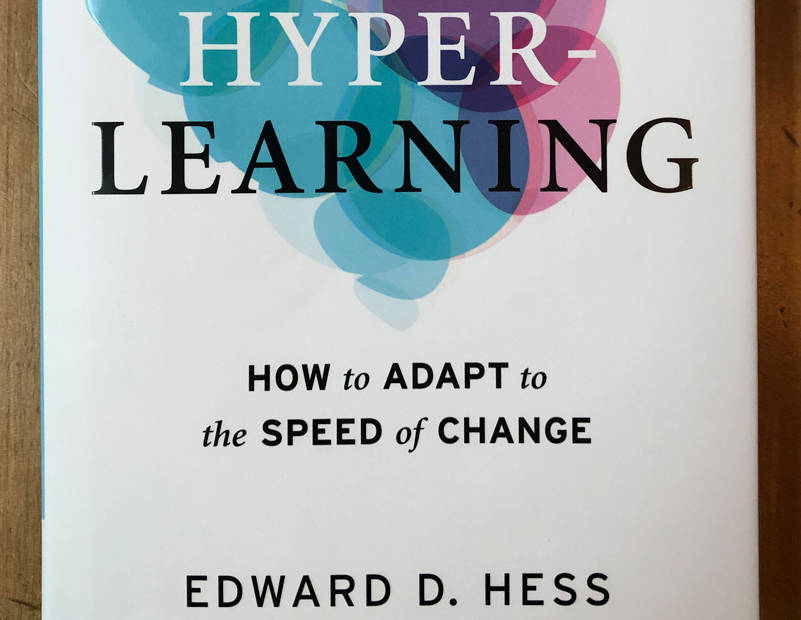By Morf Morford
Tacoma Daily Index
“The illiterate of the 21st century will not be those who cannot read and write, but those who cannot learn, unlearn, and relearn.” – Alvin Toffler in 1984
Who is taking all the jobs?
Business pages and headlines – and more conversations than could be counted have addressed this question; which is our greatest threat, cheaper foreign labor or technology?
The answer is both – though technology has eliminated vastly more jobs than cheap foreign labor ever could.
But is that even the most relevant question?
When I was in college, a common premise was that a properly phrased question almost always opens the way to the best answer.
Instead of “Who (or what) is taking all the jobs?” how about if we ask, in a sense, the opposite question – what is that set of skills or attributes specifically held by human beings beyond the reach of mechanical or digital replacement?
What is it about human beings that is beyond the scope of algorithms and AI (Artificial Intelligence)?
With auto-checkout at grocery stores, or tele-medicine or even art (https://www.artaigallery.com/pages/original-ai-art) or articles (https://www.theguardian.com/commentisfree/2020/sep/08/robot-wrote-this-article-gpt-3), what is it that only humans can bring to the table?
You could say that was the premise of the book Hyper-learning by Edward D. Hess.
Darden School of Business Professor Edward Hess says the real and lasting answer is hyper-learning: developing our uniquely human qualities as agile, adaptive, iterative learners without fear or ego inhibiting that learning.
In the seemingly irresistible digital age, humans will succeed by doing what technology can’t do well: being creative, imaginative, and innovative; engaging in higher-level critical thinking; making decisions in environments where there is a lot of uncertainty and little data; and connecting and collaborating productively and creatively with fellow humans.
Hyper-learning is foundational for optimizing and bringing into reach every one of these tasks.
Hess describes the core mindsets and behaviors that enable hyper-learning for individuals and teams including harnessing the power of human emotions, choices, and behaviors to enable the highest levels of human cognitive, emotional, and behavioral performance.
As a computer pioneer put it many years ago, machines can be fast and powerful, but they tend to be dumb.
Just because a task can be accomplished faster or at a larger scale does not mean that it is necessarily better.
There are many tedious or dangerous jobs that machines – not humans – should be doing.
But what is that rarified set of skills – if not careers – specific to human beings, and (relatively) safe from the intrusion of the machine?
Computers, and the myriad of devices around us, are much smarter than they were a generation ago, but humans have an advantage – if we can avoid our own danger zones (more on that in a few paragraphs).
“All learning occurs in conversations with yourself (deep reflection) or with others.”
Hess advocates that we all need to become hyper-learners: continuously learning, unlearning, and relearning at the speed of change.
To do that, we have to overcome our reflexive, if not automatic, ways of being: seeking confirmation of what we believe, emotionally defending our beliefs and our ego, and seeking cohesiveness and confirmation of our pre-conceived mental models.
In other words, we as humans tend to see what we want to see, find “evidence” that confirms that we were right all along and that confirms our biases.
Success will not be found as long as we are bound by our fears and our own ego (determination to always be right). How many of us know people (or have seen ourselves) get sabotaged by our own fear or ego?
Unlearning and relearning, letting go of what we think we know, or even “how we have always done it” will be the central skills for the digital age.
In short, as Hess points out in the preface of the book, by quoting thinker and futurist Yuval Noah Harari who emphasizes that the real and defining skill of the future, if not survival is “not merely to invent new ideas and products but above all to reinvent yourself again and again”.
One way we do this is by listening. Actually listening. Not waiting for the other person to stop talking so you can talk, not listening for confirmation – or even for criticism – but to actually understand someone else.
Hess’s premise is that the most productive state for any organization is one of “collective flow” – where each member feels safe, respected and valued and ideas and solutions emerge – often without awareness of who came up with them: the ideas come from the nexus of perspectives and values unique to that collection of people – and would not have come from any single one of them.
His premise is that the most successful companies will be those that can create ‘caring, trusting teams” – teams where members share a purpose, values and respect basic rules of engagement which include candor, open-mindedness, critiquing of ideas – not people, listening to learn, not just confirm, collaborate more than compete and confront that bane of too many meetings and organizations – the dominance of a few – especially those of higher rank or position.
Ideas should be recognized or valued for what they are – not by who brought them up. “I am not my idea” was a concept central to development.
Listening, not telling, is the mark of the best leader.
Machines, it bears repeating, were invented to free human beings from the hazards or repetitiveness of much of necessary labor.
You’d think more of us would appreciate that fact.
There’s a school of thought among community organizers; focus on your community’s assets – not its problems – what your community has, not what it doesn’t have.
A community’s strengths are present and available – and often overlooked.
The same with the inherent – and irreplaceable – strengths and assets of human beings.
Technology can, and was intended to, free us to do what only we can do.
Those who would succeed would be those who can flex to meet new, challenging and unpredictable situations.
Technology, disease and cultural changes continually create and re-create our professional and personal landscapes. Our ability to adapt to those demands will make all the difference in the years to come.





